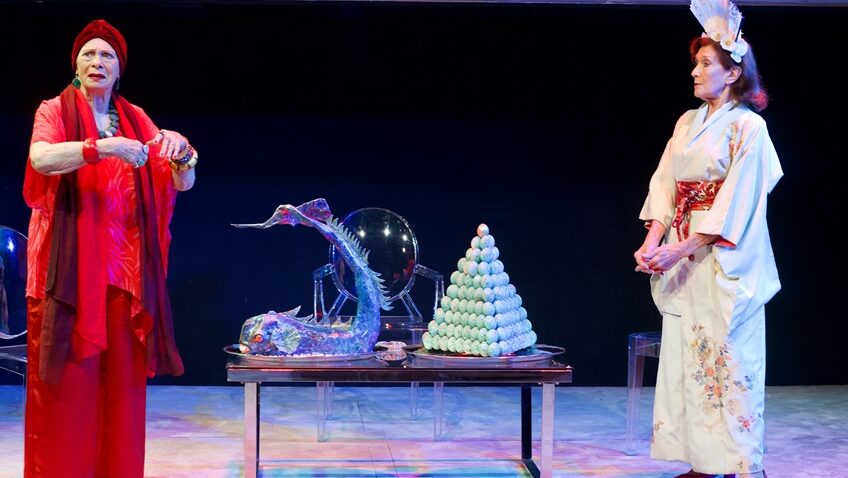“If you write a play with a strong female role,” said Tennessee Williams, “it is likely to surface repeatedly since female stars of a certain age have a rough time finding vehicles suitable for their talents, personalities and public image.”
“I draw every character out of my multiple split personality,” he went on. “My heroines always express the climate of my interior world at the time those characters were created.”
Flora Goforth, a typical Williams lost soul, a faded belle, four times widowed, is dying of cancer in a villa overlooking the Mediterranean. She fortifies herself with morphine and brandy and dictates her memoirs.
Christopher Flanders, a poet and hustler, arrives out of the blue and offers sex and sympathy. He is well-known on the circuit and nicknamed the Angel of Death because he has the bad habit of coming to call on a lady just a step or two of the undertaker.

The Milk Train Doesn’t Stop Here Anymore (another of Tennessee Williams’s great poetic titles!) was written in response to the death of Williams’s long-term lover, Frank Merlo, and is rarely performed; and for good reason.
It has had a chequered career. Hermione Baddeley scored a big success in the original Broadway production in 1963; unfortunately, it closed three days later. It was revived the following year in a new version with Tallulah Bankhead who, deep into drugs and drink, no longer had the stamina to sustain the role. It ran for five performances.
It was then made into a movie, Boom! by Joseph Losey in 1968, with Elizabeth Taylor. Richard Burton and Noel Coward. It bombed, too. Ruth Gordon was going to do it at The Royal Court Theatre but she didn’t even get past the first week of rehearsal. Williams went on rewriting the play until his death in 1965. He never got it right.
The last actor I saw play Flora Goforth was Rupert Everett in full drag in 1997 and that didn’t work either. Now, it is Linda Marlow and Sanee Raval (as the Angel of Death) who have to grapple with this difficult play and especially its final scene, which, in this production by Robert Chevar, is still badly in need of editing.
Sara Kestleman as the Witch of Capri (a high camp role with a brittle line in bitchy insults) and Lucy Shorthouse as Flora’s bullied secretary (who takes the bullying in her stride) have a much easier passage than the lead actors and are well cast.
To learn more about Robert Tanitch and his reviews, click here to go to his website 




